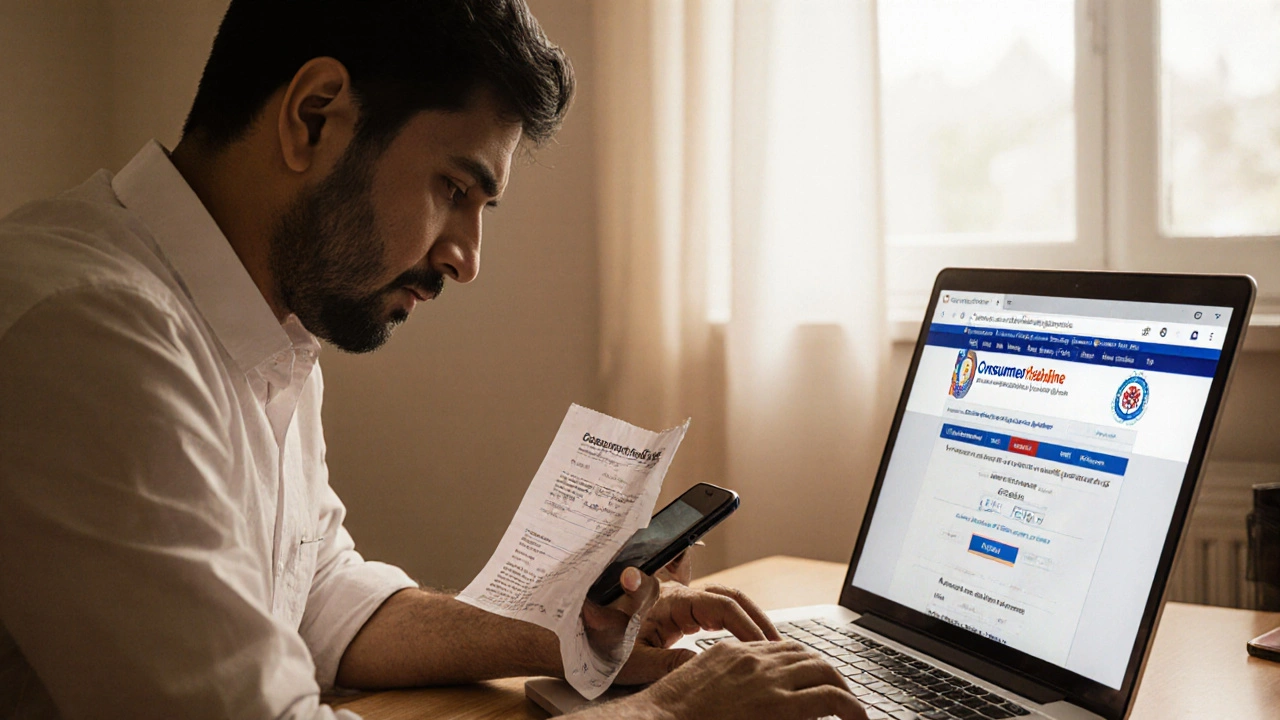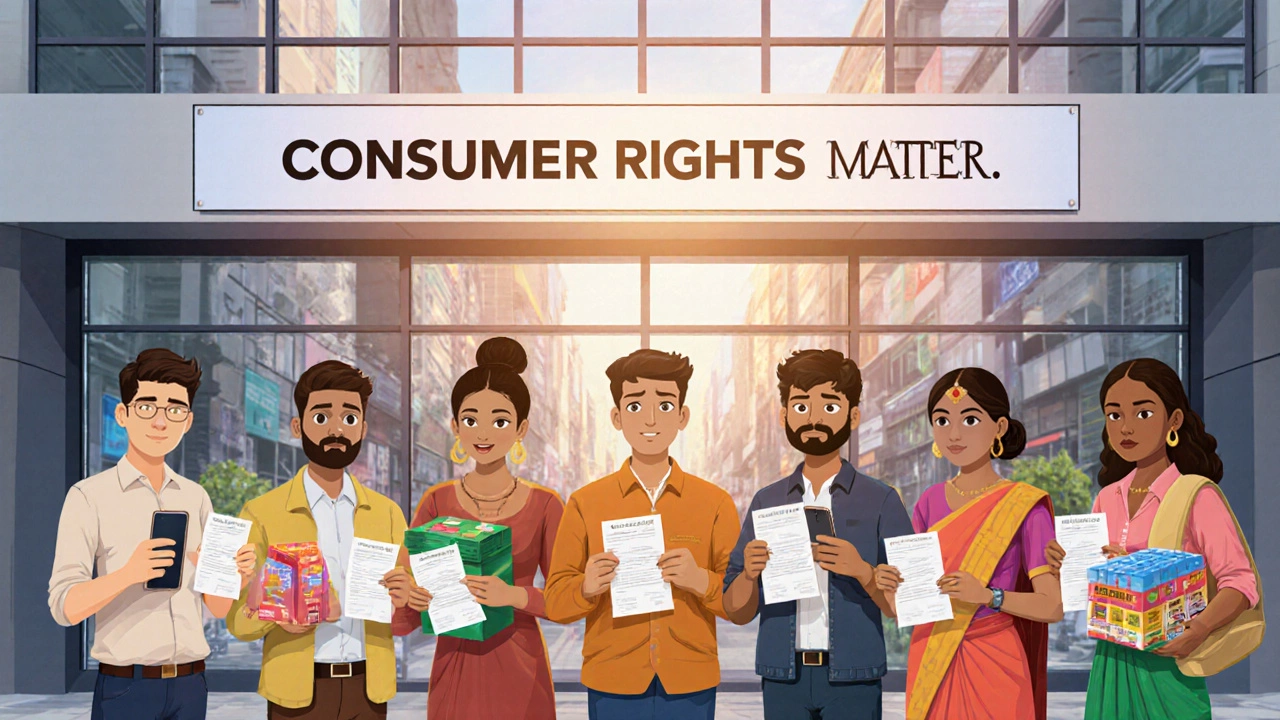Consumer Rights in India – What Every Shopper Should Know
Ever bought something that turned out faulty or felt a company was ignoring your complaint? You’re not alone. Indian law gives you clear tools to fight back, and they’re simpler than you think. Below we break down the most useful rights, the fastest ways to use them, and the steps that actually work.
Key Rights You Can Use Right Now
Right to Refund – If a product is defective, you can ask for a full refund. The Consumer Protection Act (CPA) 2019 says the seller must either replace the item or give you the money back within a reasonable time.
Right to Reject – Not happy with the quality right after purchase? You can reject the goods within a set period (usually 30 days) and demand a replacement or refund. This right saves you from being stuck with junk.
Section 5 – Central Consumer Protection Authority (CCPA) – This section creates the CCPA, the body that watches over unfair trade practices. You can file a complaint with them if you think a company is breaking the rules.
Section 35 – Easy Complaint Filing – Section 35 lets you file a complaint without a lawyer. Just write a simple letter or use the online portal, attach your proof, and the consumer court will take it from there.
How to File a Complaint in 5 Simple Steps
1. Gather Evidence – Keep receipts, photos of the defect, emails, and any communication with the seller. The stronger your proof, the faster the case moves.
2. Send a Formal Notice – Write a short notice to the seller stating the problem and what you want (refund, replacement, or repair). Send it by registered post or email so you have a record.
3. Approach the Consumer Forum – If the seller doesn’t respond, file a complaint online at the consumer court portal. Choose the district forum if the amount is under ₹1 crore, otherwise go to the state or national level.
4. Pay the Fee – The filing fee is nominal (around ₹100‑₹500). Keep the receipt; you’ll need it for the hearing.
5. Attend the Hearing – Bring all your documents. The judge will ask simple questions, and most cases are settled within a few months.
Remember, you don’t need a lawyer for most consumer cases. The process is built for regular people like you.
Besides these steps, the CPA also protects you against false advertising, unfair contract terms, and dangerous products. Sections like 54 (product liability) and 70 (dispute resolution) give you extra leverage if a company tries to dodge responsibility.
For digital services, the CCPA (also known as the Consumer Protection Act) now covers data privacy. If a company misuses your personal info, you can file a complaint just like you would for a faulty toaster.
Feeling stuck? Start with a quick phone call to the seller’s customer service. Many issues get resolved there. If not, move to the written notice and follow the steps above. Most consumers get their money back or a replacement within a few weeks when they use the right sections of the law.
Bottom line: Indian consumer law is on your side. Know your rights, keep good records, and use the simple complaint process. It’s easier than you think, and it works.

Can You Sue a Company for Not Refunding Your Money in India?
In India, you have legal rights to demand a refund if a company fails to deliver goods or services. Learn how to file a consumer complaint and when you can sue for your money back under the Consumer Protection Act, 2019.

What Happens When Consumer Rights Are Denied in India?
When consumer rights are denied in India, the law doesn't stay silent. Learn how complaints work, what penalties companies face, and how to get your money back under the Consumer Protection Act 2019.

How Consumer Complaints Work in India: A Step-by-Step Guide for 2025
Learn how to file a consumer complaint in India in 2025-step by step, without a lawyer. Know your rights under the Consumer Protection Act, where to file, what compensation you can get, and how to avoid common mistakes.

What is the Consumer Protection Act in India? A Simple Guide to Your Rights
The Consumer Protection Act in India gives you legal rights when you're cheated by sellers or service providers. Learn how to file a complaint, what relief you can get, and why this law matters more than ever in today's digital marketplace.

What Is Section 49 of the Consumer Rights Act in India?
Section 49 of the Consumer Protection Act, 2019 doesn't exist. Learn the real sections that protect your rights as a consumer in India-how to file a complaint, get a refund, and avoid common legal myths.

Section 60 of Indian Consumer Law Explained
Learn what Section 60 of India's Consumer Protection Act is, when it applies, how to file a petition, and real‑world examples to help you get refunds fast.

Section 55 of India's Consumer Protection Act Explained
Learn what Section 55 of India's Consumer Protection Act means, how to file a complaint, applicable courts, timelines, fees, and real‑world examples.

Consumer Rights in India: Complete Guide 2025
Learn the essential consumer rights in India, the key laws, how to file a complaint, and practical tips for getting refunds or compensation.

Section 75 of the Consumer Credit Act: What It Covers, When It Applies, and How to Claim
Section 75 explained: UK credit card protection for £100-£30,000 purchases, who’s liable, what counts, edge cases, and step‑by‑step on how to claim-plus pitfalls to avoid.

India Code Consumer Protection Act: Everything You Need To Know in 2025
Unpack the India Code Consumer Protection Act in plain English. Find out what this law really means, why it matters, who it protects, and how you can use it to your advantage in 2025.

7 Essential Rights for Consumers Under the CCPA: Your Guide in 2025
Learn the seven key rights the California Consumer Privacy Act gives you, how they work, and ways to make sure businesses respect your privacy in 2025.

What Happens If You Don't Follow the Consumer Rights Act? (NZ 2025 Guide)
Learn what happens when businesses or individuals ignore the Consumer Rights Act in New Zealand. Find out about real penalties, customer disputes, and how broken rules can hit your reputation and your wallet.